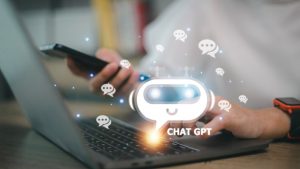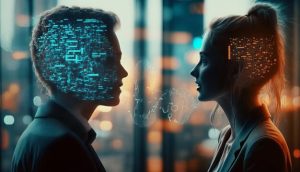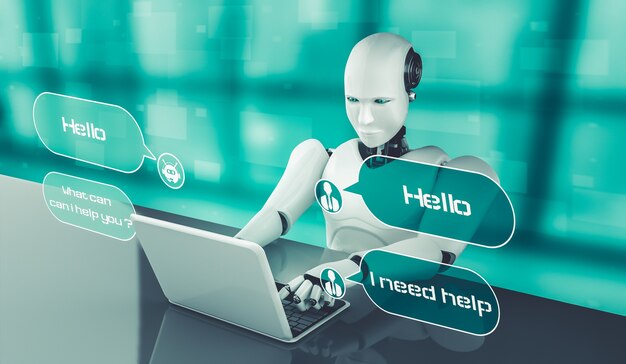The AI Doctor Is In: ChatGPT and Its Implications for Self-Diagnosis Introduction Hello, I’m Fred. In this article, I will share with you my insights on ChatGPT, a chatbot developed by OpenAI that can generate human-like text based on prompts from users like you. I will also discuss the ethical and social implications of using
The AI Doctor Is In: ChatGPT and Its Implications for Self-Diagnosis
Introduction
Hello, I’m Fred. In this article, I will share with you my insights on ChatGPT, a chatbot developed by OpenAI that can generate human-like text based on prompts from users like you. I will also discuss the ethical and social implications of using ChatGPT for self-diagnosis, and how it can affect the doctor-patient relationship. I hope you will find this article informative and engaging.
What is ChatGPT?
ChatGPT is an AI model that uses deep learning to generate human-like text based on prompts from users. It works by predicting the next word in a given text, based on the patterns it has learned from a massive amount of data during its training process. ChatGPT can chat with images, voice, and text, and get instant answers, creative inspiration, and learning from a powerful AI model. You can also create your own GPTs for different purposes, such as writing, math, gaming, or tech support.

Image by https://truegazette.com/
How can ChatGPT be used for self-diagnosis?
Self-diagnosis is the process of identifying what medical conditions you have without the help of a professional, such as a doctor or a psychiatrist. It may be assisted by medical dictionaries, books, resources on the Internet, past personal experiences, or recognizing symptoms or medical signs of a condition that a family member previously had or currently has. ChatGPT can be used for self-diagnosis by providing users with a chat interface where they can describe their symptoms, ask questions, and receive feedback from the AI model. ChatGPT can also use images and voice to enhance the interaction and provide more accurate and personalized responses.
What are the pros and cons of using ChatGPT for self-diagnosis?
Using ChatGPT for self-diagnosis can have both positive and negative effects on the users and the society. Some of the pros and cons are:
Pros
- ChatGPT can provide users with quick and easy access to information and guidance on their health conditions, especially when they are unable to visit a doctor or have limited healthcare resources.
- ChatGPT can offer users a friendly and empathetic chat experience, which can reduce their anxiety and stress, and improve their mental well-being.
- ChatGPT can help users learn more about their health conditions, and encourage them to seek professional help when needed.
- ChatGPT can also help users find support and solidarity from other people who share similar conditions or experiences, and create a sense of community and belonging.
Cons
- ChatGPT can also provide users with inaccurate or misleading information, which can lead to misdiagnosis, inappropriate treatment, or delayed care.
- ChatGPT can also influence users’ perceptions and expectations of their health conditions, and cause them to overestimate or underestimate their symptoms, or adopt a state of denial or self-blame.
- ChatGPT can also undermine the authority and credibility of doctors and other healthcare professionals, and erode the trust and communication between them and the patients.
- ChatGPT can also raise ethical and social issues, such as privacy, consent, accountability, and bias, and pose challenges for the regulation and governance of AI in healthcare.

Image by: https://truegazette.com/
How can ChatGPT affect the doctor-patient relationship?
The doctor-patient relationship is a complex and dynamic one, based on mutual respect, trust, and communication. It is essential for the delivery of quality and effective healthcare, and the satisfaction and well-being of both parties. ChatGPT can affect the doctor-patient relationship in various ways, depending on how it is used and perceived by the users and the doctors. Some of the possible effects are:
Positive effects
- ChatGPT can complement and enhance the doctor-patient relationship, by providing users with additional information and support, and helping them prepare for their consultations with the doctors.
- ChatGPT can also facilitate and improve the doctor-patient relationship, by providing doctors with more data and insights on the users’ health conditions, and helping them communicate better with the users.
- ChatGPT can also foster and strengthen the doctor-patient relationship, by creating a shared understanding and appreciation of the benefits and limitations of AI in healthcare, and promoting a collaborative and respectful approach to decision-making.
Negative effects
- ChatGPT can also compete and interfere with the doctor-patient relationship, by providing users with conflicting or contradictory information and advice, and making them doubt or disregard the doctors’ opinions.
- ChatGPT can also disrupt and damage the doctor-patient relationship, by providing doctors with inaccurate or incomplete data and insights on the users’ health conditions, and making them misdiagnose or mistreat the users.
- ChatGPT can also undermine and threaten the doctor-patient relationship, by creating a power imbalance and a lack of transparency and accountability between the users and the doctors, and compromising the ethical and legal standards of healthcare.
Conclusion
In this article, I have introduced you to ChatGPT, a chatbot developed by OpenAI that can generate human-like text based on prompts from users. I have also discussed the ethical and social implications of using ChatGPT for self-diagnosis, and how it can affect the doctor-patient relationship. I hope you have learned something new and interesting from this article, and I invite you to share your thoughts and feedback with me. Thank you for reading. 😊


















Leave a Comment
Your email address will not be published. Required fields are marked with *